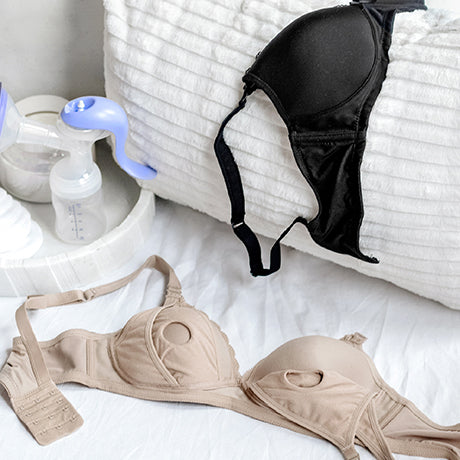Decisions You Have to Make on your Baby’s Birth Day: Part 1

You have your bag packed, your route to the hospital mapped out and your baby’s name ready to roll off your tongue the moment she’s born. But do you know which decisions you have to make on your baby’s birth day? There’s quite a few of them and you’ll probably want to do your research before the big day.
We’re sharing the questions you will be asked by doctors and nurses so you can be prepared for decisions you have to make on your baby’s birth day.
Skin-to-Skin
If you want to hold your baby immediately after birth, make your wishes clear to your doctor, midwife and nursing team. Even in cesarean births moms are often allowed to snuggle their babies for a moment as long as both mother and baby are deemed healthy enough. Immediate skin-to-skin lovin’ is a marvelous first bonding experience with your baby. She’ll start to feel safe in your warm embrace and become familiar with your scent, sound and body rhythm.
Breastfeeding
While enjoying skin-to-skin, babies often instinctually want to breastfeed. Again, it is essential for mothers to clearly tell their hospital team that they want to breastfeed as soon as possible after birth. Nursing within the first hour of birth helps jumpstart the breastfeeding relationship so both baby and mama can get the hang of it faster.
Birthing Partner
Have you decided who will be with you in their delivery room? Often moms just want dad around but sometimes they choose a best friend, sister, mom or other family member to witness the miracle. And sometimes a doula or other helpful birthing coach is there to support mom through labor and delivery. Before you invite the neighborhood, ask your hospital their limitations in the delivery room. Obviously if you have an unexpected c-section, most of your guest list will be banned from the operating room.
Delayed Cord Clamping
Delayed cord clamping is increasingly popular. Typically your OB or midwife will cut the umbilical cord within one minute of birth. However, some new moms are optioning to delay cord clamping by a few extra minutes to allow the placenta to pump extra blood into the baby. This could increase the baby’s blood supply by over 30% and possibly prevent anemia in infancy. But there are risks to weigh as well.
Cord Blood Banking
The umbilical cord contains potentially life-saving stem cells that can be stored for future use for your baby or other family members should they need it for medical purposes. In some cases, people with cancer, blood disorders and immune system diseases have benefited from using these stem cells. There is a hefty fee for cord blood banking so consider the pros and cons and be ready to make the decision right away.
Placenta Release
Some mothers choose to eat their placenta as it contains many rare and rich nutrients. However, your hospital may have a strict procedure for releasing the placenta since it is an organ. Check with the hospital where you plan to give birth to find out the placenta release regulations.
Circumcision
For new moms of boys, you may choose to have your baby circumcised in the hospital by your obstetrician. While circumcision was rarely questioned a decade ago, now many families are not opting for neonatal circumcisions of their baby boys. The foreskin of the penis is not necessary but it usually does not pose a problem either as long as you keep it clean.
Bathing
It is typical for nurses to give your baby her first bath pretty soon after birth. That’s because babies are born with a waxy substance called vernix coating their bodies. If you or your husband would prefer to give the first bath, let your hospital team know so they won’t take away the honors.
That’s a lot to think about and that’s only half the list! Stick around later this week for even more decisions you have to make on your baby’s birth day.
Sources: Fit Pregnancy, ChildrensMD, Baby Gaga and CDC
The post Decisions You Have to Make on your Baby’s Birth Day: Part 1 appeared first on Leading Lady.






